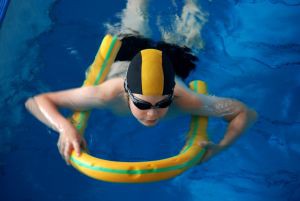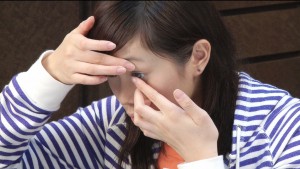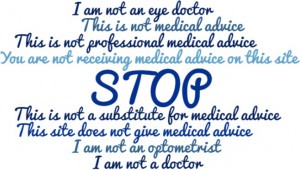If you’re a parent who’s child is interested in contact lenses, or you’re interested in contact lenses for your child, you may be wondering: ‘At what age can you start wearing contact lenses?’. The answer is that there is no exact cutoff age for contact lenses. The age at which children can start wearing contact lenses depends mainly on other factors, which I will discuss in this article.
I am not a doctor and this article is not a substitute for professional medical advice. Nor you, or your children are being prescribed contact lens solution on this page. Please read Contacts Advice Terms of Use before continuing.
What Is The Maturity Level?
With great contact lenses, comes great responsibilit- wait, that doesn’t quite work… But to wear contact lenses, it does require a minimum level of responsibility. That is because in order to be successful in contact lenses, certain rules need to be followed. These rules include not over-wearing the contact lenses (maximum # of hours of wear-time per day), not sleeping in the contact lenses

(generally speaking), not swimming or showering with the contact lenses (though there are exceptions to this), properly cleaning the lenses (for non daily-disposable lenses), properly inserting and removing the contact lenses, etc.
If you think you or your child is mature and responsible enough to comply with all of these rules, then age isn’t really that important. Generally by ten years old, most people are able to start wearing contact lenses. But with that being said, there are definitely children younger then ten who would be ready for contact lenses, as there are many children older than ten that are still several years away from being ready.
What Is The Motivation For The Contact Lenses?
The motivation behind the contact lenses is huge. If children are highly motivated to wear contact lenses, even at young ages, they will be very compliant with all of the rules and responsibilities

that come with contact lenses. If it’s a child who loves sports but can’t participate because of glasses, they may be willing to do whatever it takes to be able to play the sport they love. If it’s a child
who absolutely despises how they look with glasses, and will take them off in the classroom at the expense of being able to see, they will be very motivated to make contact lenses work for them.
That’s why I would say that the motivation for the contact lenses is more important than the age. On the flip side, if the reason is that mom or dad doesn’t like the idea of their child wearing glasses so they impose contact lenses on them, it probably won’t work out.
Choosing The Right Lens For The Right Age.
Nowadays, there are many different types of contact lenses. In particular, there are more daily contact lens options now than ever before. For young children (under 12) and even in the low teens, daily contact lenses provide all the benefits of wearing contact lenses with a lot less hassle. One of the biggest sources of problems with contact lenses is improper care of the lenses and the lens case. Keeping the lenses clean, and hence safe/comfortable requires proper cleaning and storing techniques, proper cleaning solution etc. But with daily contact lenses (lenses that you throw away after 1 day of use) you can bypass all of these burdens. This means that with daily contact lenses, people can get into contact lenses much younger than in the days of yearly replacement lenses or hard contact lenses.
Dexterity Skills

Lastly, to wear contact lenses you have to be able to put the contact lenses in and take them out of your eyes. If you or your child doesn’t have the dexterity or the muscle coordination do perform these acts, you may have to wait a little until these skills develop. With practice these skills can be obtained quickly, but for some it may be a limitation.
In a unique cases, contact lenses may be medically necessary for children who are too young to insert and remove them themselves. In situations such as these, it may be necessary for the parents to insert and remove the lenses until the child is old enough to it on his/her own.
Summary
If you’re interested in contact lenses for your child but you’re still not sure if he/she is ready for them yet, discuss it with your eye doctor. You can always give it a try. and if it doesn’t work out, try again the following year.





12 Responses
John
Julie,
Having wore contacts for 20 years myself, I do not know how my 9 year old would be able to do this. He is so scared to touch his eyeball. He does not take on responsibility very well. I will have to wait. Thanks for your input on what age he would be ready to wear contacts, but he is one that will have to wait until he is more responsible.
John.
Julie
Hi John,
Your experience will help you know when your son is ready. There is no rush! Thanks for reading :)
Julie
Amanda
Nice site a lot of great information.
Julie
Thanks Amanda :)
Doug Beney
I started wearing mine at age 14-15ish. I wasn’t the most responsible contact-user though haha. Unfortunately I would lose a ton of lenses by swimming, sleeping, and showering with them in.
From my experience, daily contacts are better than bi-weekly or weekly. Less maintenance.
Julie
Yes I agree! My go-to lenses for any new contact lens wearer is always a daily lens. Thanks for reading! :)
Kirsty
Wow, I didn’t know about any of this haha. Luckliy, I have good eye sight and haven’t had to deal, considering I’m the only one in my family that doesn’t have glasses or contacts. This was a very informative post, you’re on to something good here, keep it up! :)
Julie
You’re lucky that you don’t have to worry about any of this :p
Thanks for the compliment, I appreciate it :)
Matthew
As a person who has had lenses for a while, I think they’re great! It definitely takes some getting used to. I can understand some parents not wanting to spend money for expensive contacts if a child is irresponsible… Great article and you have a wonderful writing voice!
Julie
I’m glad you’re doing well in your contact lenses! Hope you keep reading and if you ever have any questions, feel free to ask!
Thanks for reading :)
Dave
I agree with you on maturity level. As long as the individual is responsible enough to care for their lenses and is able to safely put them in and remove them…that should be the key. I got my first pair when I was an adult, but would have loved to have had them when I was in high school or younger.
Julie
Hi Dave!
That’s great that you decided to give it a try as and adult. Better late than never, right? ;)
Julie